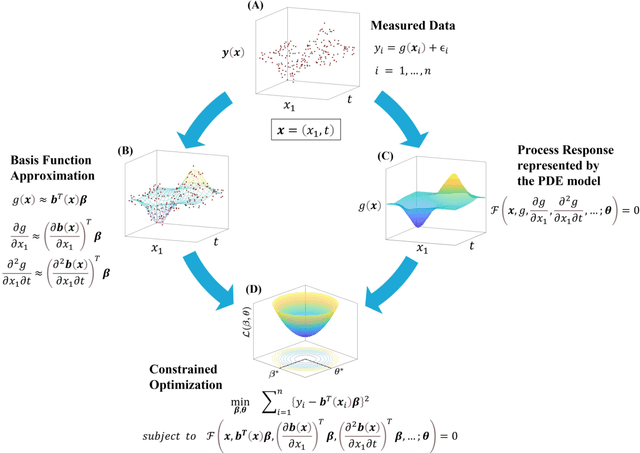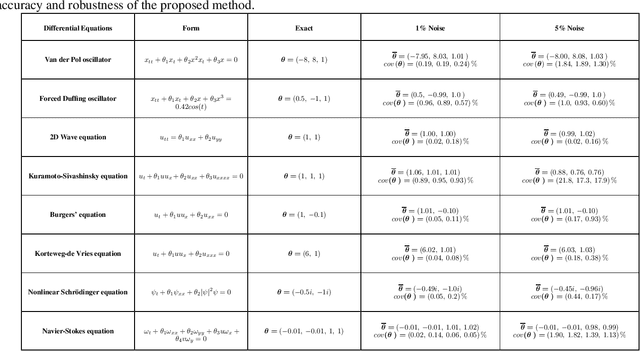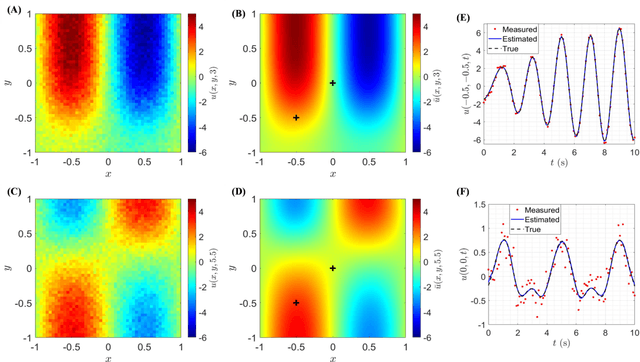Sutanu Bhowmick
Physics-informed AI and ML-based sparse system identification algorithm for discovery of PDE's representing nonlinear dynamic systems
Oct 13, 2024Abstract:Sparse system identification of nonlinear dynamic systems is still challenging, especially for stiff and high-order differential equations for noisy measurement data. The use of highly correlated functions makes distinguishing between true and false functions difficult, which limits the choice of functions. In this study, an equation discovery method has been proposed to tackle these problems. The key elements include a) use of B-splines for data fitting to get analytical derivatives superior to numerical derivatives, b) sequentially regularized derivatives for denoising (SRDD) algorithm, highly effective in removing noise from signal without system information loss, c) uncorrelated component analysis (UCA) algorithm that identifies and eliminates highly correlated functions while retaining the true functions, and d) physics-informed spline fitting (PISF) where the spline fitting is updated gradually while satisfying the governing equation with a dictionary of candidate functions to converge to the correct equation sequentially. The complete framework is built on a unified deep-learning architecture that eases the optimization process. The proposed method is demonstrated to discover various differential equations at various noise levels, including three-dimensional, fourth-order, and stiff equations. The parameter estimation converges accurately to the true values with a small coefficient of variation, suggesting robustness to the noise.
Data-Driven Theory-guided Learning of Partial Differential Equations using SimultaNeous Basis Function Approximation and Parameter Estimation
Sep 14, 2021



Abstract:The measured spatiotemporal response of various physical processes is utilized to infer the governing partial differential equations (PDEs). We propose SimultaNeous Basis Function Approximation and Parameter Estimation (SNAPE), a technique of parameter estimation of PDEs that is robust against high levels of noise nearly 100 %, by simultaneously fitting basis functions to the measured response and estimating the parameters of both ordinary and partial differential equations. The domain knowledge of the general multidimensional process is used as a constraint in the formulation of the optimization framework. SNAPE not only demonstrates its applicability on various complex dynamic systems that encompass wide scientific domains including Schr\"odinger equation, chaotic duffing oscillator, and Navier-Stokes equation but also estimates an analytical approximation to the process response. The method systematically combines the knowledge of well-established scientific theories and the concepts of data science to infer the properties of the process from the observed data.
 Add to Chrome
Add to Chrome Add to Firefox
Add to Firefox Add to Edge
Add to Edge